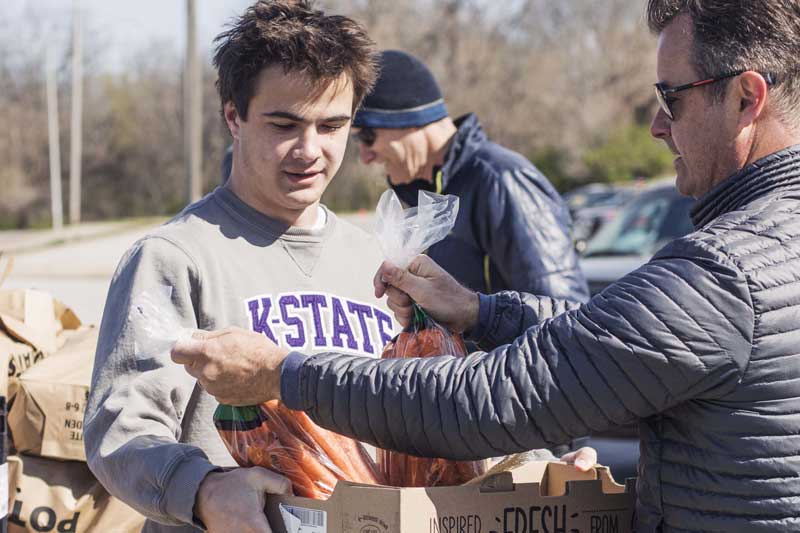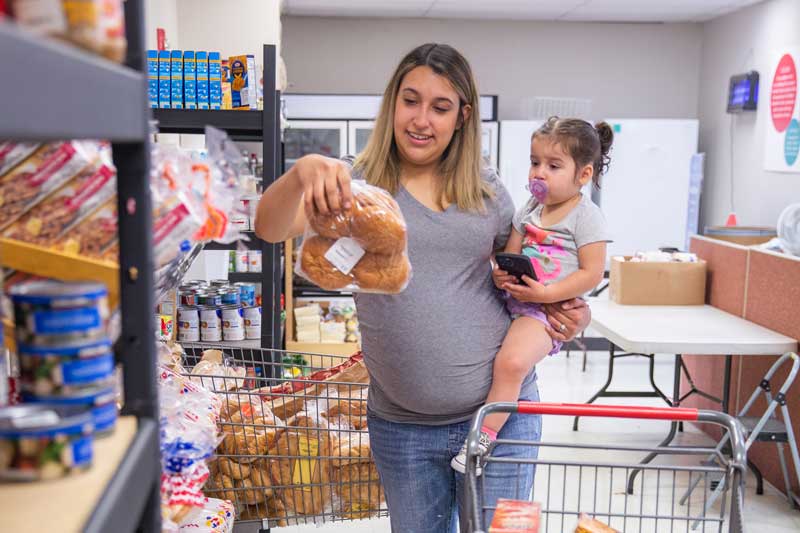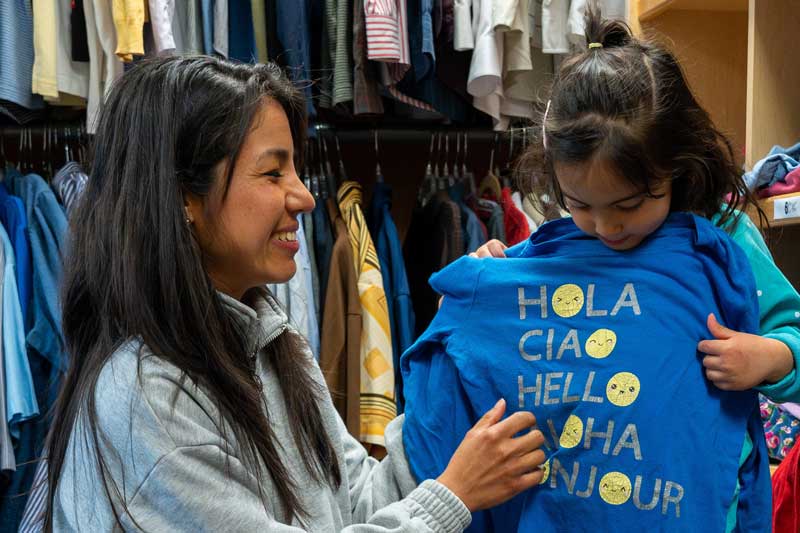Last year, Catholic Charities of Northeast Kansas helped more than 70,000 community members thanks to its 30 distinct programs.
Since the 1950s, Catholic Charities of Northeast Kansas (CCNEK) has been caring for their community. Their programs—which currently include everything from financial literacy to workforce development, food banking and even a foster grandparent program—continue to grow to meet the ever-changing needs of their participants. Their Shalom House program, for instance, when it first opened could only serve 25 men in a fairly undignified and temporary shelter, offering only a hot meal and a night’s stay has grown to a 60-bed shelter and transitional living facility on 27 acres. And this is just one example of their astonishing growth.

“We’ve tried to grow as much as possible, as fast as possible, for those who are in need,” shares Lauren Solidum, president and CEO of CCNEK. The organization offers more than 30 programs in 21 counties and served more than 70,000 people in 2024. “We currently have more than 200 employees, and last year, we had roughly 9,000 volunteers with us as well, which was just incredible.”
CCNEK thinks of their work in two different categories. They offer both a kind of crisis intervention, which focuses on immediate needs, such as food or shelter to quickly stabilize clients, but they’re also always looking at the longer-term piece as well—what they call the “strengthening piece.” This part of their work includes making clients self-sufficient. “While we offer programs that help get clients clothed, fed, sheltered, our real goal is to pull them out of that situation altogether because we don’t want people to remain in poverty,” Solidum explains. One of the programs that addresses this goal is St. Rita, a workforce program which provides the support and assistance a participant needs to earn a certificate or degree in under 12 months, as well as obtain and retain employment.
“I started my work with CCNEK with the workforce program, when there were only six enrolled. I watched it grow to 30 during my time,” says Sarah Larson, who left the workforce program to become grants manager at CCNEK in 2022. “Now the workforce program is serving over 200 participants each year. It’s truly remarkable how much these programs have grown. Thinking back to 2020, I would have never imagined the program serving this many, but we saw the demand, listened to our communities, and found the resources to meet the need.”

Other programs seeing exponential grown include the Hope Distribution Center (HDC), a centralized warehouse for CCNEK’s food operations. “Within 10 years, CCNEK went from distributing 200,000 pounds of food to over 2 million pounds of food annually. Not only has HDC helped us battle food insecurity, but with refrigerated storage and space to store fresh produce we have been able to focus on offering higher quality, nutrient-dense fresh food,” adds Larson. A recent McGowan grant for food has also allowed CCNEK to allocate funds to purchase fresh locally grown produce from New Roots, a farm training program for refugees, and immigrants. New Roots produce is distributed throughout CCNEK’s Kansas City metro pantries; this grant also allows CCNEK to give over 2,200 pounds of fresh produce to low-income seniors residing in Wyandotte County.
Part of CCNEK’s core mission is to make sure that they’re offering services to participants that span an entire lifetime. (Their financial literacy program starts at age 8.) The work they’re doing is also about bringing the community together. Whether it’s asking for donations from those who have something to spare for those in need or educating community members who live in comfort about the tribulations of living in poverty, CCNEK is serious about the impact they can make. “Catholic Charities has a responsibility to help bridge the gap between people who have a lot of resources, an abundance really, and the people who don’t,” Solidum explains. “I think we take the educator role very seriously. We really want to foster a deeper connection and understanding within the community.”
A newer program offered by CCNEK is the Cost of Poverty Experience (COPE), a three-hour simulation that allows participants the opportunity to experience poverty firsthand through scenarios of real families; it is also a mandatory component of onboarding for all of CCNEK’s employees. “Participants are assigned to families and tasked with navigating the complexities of a month, simulated across four 15-minute “weeks.” Each family unit has specific tasks to accomplish weekly, mimicking the demands of everyday life. On top of these tasks are various barriers that many low-income families encounter. To model the community support system, participants can interact with 13 different resources, such as schools, law enforcement, health centers, and more. Participants often experience the frustrations of long wait times at social service agencies, discrimination due to language barriers, and the stress of struggling to pay bills on a shoestring budget,” Larson shares. “Because this program has been so impactful, we’ve extended the opportunity to our volunteers, community members, board members, partners, and local schools.”
This last year, over 17,000 individuals received assistance from Catholic Charities for the first time, up from 13,000 the year before. And CCNEK only expects that number to continue to grow. When it does, they’ll be ready, as will the larger KC community.

